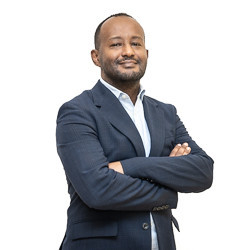Rwanda
The Context
Rwanda is a small landlocked country with limited natural resources and a modest mining industry. Agriculture is a major economic sector, employing about seven in ten people and accounting for approximately a third of GDP. Three quarters of Rwanda’s agricultural production comes from smallholder farmers. Principal crops include coffee, tea, beans and cassava, among others.
The sector is hard hit by climatic conditions, especially drought, erratic rainfall, high winds and seasonal temperature shifts. Given Rwanda’s dependence on rainfed agriculture, not addressing climate variability will impose significant economic costs.
The government hopes to boost the agri-sector by investing in infrastructure, institutions, markets and innovation, while creating an enabling environment for private sector investment.
Rwanda’s economy is resilient, having rebounded following the COVID-19 pandemic, rising food and fertilizer prices, and climate-related shocks.
However, despite creating an enabling environment for investments, foreign direct investment remains low. The main constraints to accelerating growth are lack of economic infrastructure, a limited skills base and increasing vulnerability to climate risks.
The Strategy
IFAD is working to reduce poverty by empowering poor rural people to transform the agriculture sector and reduce their vulnerability to climate change. IFAD’s main objectives include:
- sustainably increasing agricultural productivity through the management of natural resources and investment in physical and social capital;
- developing climate-resilient value chains and post-harvesting processes;
- adding value to agricultural produce and generating employment in rural areas; and
- improving the nutritional status of poor rural people.
Country Facts
- Rwanda is the most densely populated country in Africa with 503 inhabitants per square kilometre.
- More than seven in ten Rwandans live in rural areas.
- Between 2010 and 2017, rural poverty fell from 49 per cent to 43 per cent.
